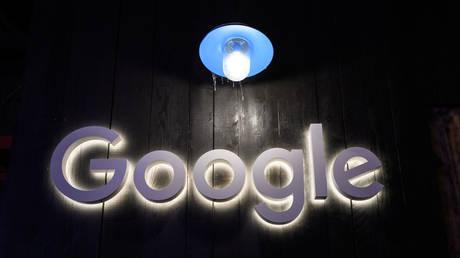World News is a news app provides news from all around the world from multiple news sources in an organized way into separate news categories.
Get World News Pro app (AD-FREE): bit.ly/WNProFB
Follow us on Instagram: instagram.com/world_news_app
Get World News Pro app (AD-FREE): bit.ly/WNProFB
Follow us on Instagram: instagram.com/world_news_app
-
2 people like this
-
0 Posts
-
0 Photos
-
0 Videos
-
History and Facts
Recent Updates
-
Western govts ditch resolution to slam Iran at IAEA despite Tehran failing to give ‘promise’ on certain questions
World NewsSeptember 13, 2021
Western states have ditched a planned resolution criticizing Iran at the UN’s nuclear watchdog, after Tehran allowed some monitoring of its atomic dealings but did not commit to answering key questions on its nuclear operations.
On Monday, the chief of the UN’s International Atomic Energy Agency (IAEA), Rafael Grossi, shared that he had failed to obtain a “promise” from Tehran that would explain the traces of uranium found at several old sites.
Grossi stated, however, that he needs to “have a clear conversation with the new [Iranian] government about this.”
Despite a lack of commitment from Tehran to explain the uranium issue, the US, France, UK, and Germany decided to scrap pursuing a resolution at the IAEA’s meeting later this week – likely in an effort to avert tensions from re-escalating with their Iranian counterparts, which could stall the nuclear deal negotiations.
On Sunday, the Atomic Energy Organization of Iran granted the IAEA permission to monitor cameras at its nuclear facilities, which Tehran has previously not permitted. A joint statement issued after the agreement hailed the progress between the two partners as having “reaffirmed the spirit of cooperation and mutual trust” and “emphasized on the necessity of addressing the relevant issues in a constructive atmosphere.”
Negotiations are still ongoing with the Islamic republic for reviving the Joint Comprehensive Plan of Action (JCPOA) after the White House unilaterally left the accord in 2018 under former US President Donald Trump. After Washington pulled out of the agreement and hit Iran with sanctions, the Middle-Eastern nation began enriching uranium to levels which breached the terms outlined in the JCPOA.
In July, Iran’s former President Hassan Rouhani revealed that Iran has the ability to enrich uranium up to 90%, the concentration considered the benchmark for producing nuclear weapons, “if one day” the reactor needs to.
US interest in mending the ruptured deal has increased under President Joe Biden’s administration, but Iran has insisted that all sanctions imposed on Washington against Tehran should be lifted first. The White House, meanwhile, refuses to do so unless Iran returns to full compliance under the JCPOA.Western govts ditch resolution to slam Iran at IAEA despite Tehran failing to give ‘promise’ on certain questions World NewsSeptember 13, 2021 Western states have ditched a planned resolution criticizing Iran at the UN’s nuclear watchdog, after Tehran allowed some monitoring of its atomic dealings but did not commit to answering key questions on its nuclear operations. On Monday, the chief of the UN’s International Atomic Energy Agency (IAEA), Rafael Grossi, shared that he had failed to obtain a “promise” from Tehran that would explain the traces of uranium found at several old sites. Grossi stated, however, that he needs to “have a clear conversation with the new [Iranian] government about this.” Despite a lack of commitment from Tehran to explain the uranium issue, the US, France, UK, and Germany decided to scrap pursuing a resolution at the IAEA’s meeting later this week – likely in an effort to avert tensions from re-escalating with their Iranian counterparts, which could stall the nuclear deal negotiations. On Sunday, the Atomic Energy Organization of Iran granted the IAEA permission to monitor cameras at its nuclear facilities, which Tehran has previously not permitted. A joint statement issued after the agreement hailed the progress between the two partners as having “reaffirmed the spirit of cooperation and mutual trust” and “emphasized on the necessity of addressing the relevant issues in a constructive atmosphere.” Negotiations are still ongoing with the Islamic republic for reviving the Joint Comprehensive Plan of Action (JCPOA) after the White House unilaterally left the accord in 2018 under former US President Donald Trump. After Washington pulled out of the agreement and hit Iran with sanctions, the Middle-Eastern nation began enriching uranium to levels which breached the terms outlined in the JCPOA. In July, Iran’s former President Hassan Rouhani revealed that Iran has the ability to enrich uranium up to 90%, the concentration considered the benchmark for producing nuclear weapons, “if one day” the reactor needs to. US interest in mending the ruptured deal has increased under President Joe Biden’s administration, but Iran has insisted that all sanctions imposed on Washington against Tehran should be lifted first. The White House, meanwhile, refuses to do so unless Iran returns to full compliance under the JCPOA.0 Comments 0 Shares 0 ReviewsPlease log in to like, share and comment! -
Cuban researchers say ‘no scientific evidence’ for US’ ‘Havana Syndrome’ claims
World NewsSeptember 14, 2021
A panel of Cuban scientists has declared that there is “no scientific evidence” for US claims that diplomats on the island fell ill due to sonic warfare attacks. The mysterious illnesses have been dubbed ‘Havana Syndrome’.
When US Vice President Kamala Harris’ flight from Singapore to Hanoi was delayed last month due to the sickness of two American officials in the Vietnamese capital, the phrase ‘Havana Syndrome’ once again entered the headlines. Named after it was first noticed in Havana in 2016, the term refers to a set of mysterious symptoms that affected American diplomats and intelligence operatives in Cuba, and later in China, Germany, Austria, and the US itself.
American politicians, researchers and pundits have all speculated that the symptoms – which purportedly include headaches, dizziness, tinnitus, hearing and vision impairment, nosebleeds, vertigo and memory loss – were caused by some kind of sonic or microwave weapon, but Cuban scientists shot down those claims on Monday.
Speaking at a press conference in Havana, a panel of scientists convened by the communist country’s government declared that claims of secret sonic weaponry were not “scientifically acceptable,” and there was “no scientific evidence of attacks.”
“The international press continues to intensely disseminate non-science-based explanations that confuse the public and harm US officials who believe them,” Dr. Mitchell Valdés-Sosa, director general of the Cuban Neuroscience Center, said. Such claims, he added, present an obstacle to the thawing of relations between Cuba and the US.
While a panel convened by a single-party state would be unlikely to implicate that same state in alleged attacks on foreign diplomats, the US has not offered any conclusive proof of foul play either.
“Convinced” that diplomats were being attacked, then-Secretary of State Rex Tillerson scaled back the US’ diplomatic presence in Havana in 2018, as the CIA and National Security Council investigated the bout of illnesses. The US National Academies of Sciences, Engineering, and Medicine (NASEM) concluded in December 2020 that “directed, pulsed radio frequency energy” was the “most plausible” explanation behind the cases, but the report, commissioned by the State Department, did not rule out other possibilities.
One of those possibilities is that the high-pitched noises some sufferers reported hearing prior to the onset of their symptoms was actually of natural origin. A researcher at Berkeley University discovered in 2019 that the sound was a near-perfect match to the continuous chirping of the Indies cricket.
The State Department rejected the research and continues to believe that diplomats in Cuba were attacked. Other researchers, meanwhile, have noted that the symptoms of ‘Havana Syndrome’ are genuine, but their origins unexplainable.
Like this story? Share it with a friend!Cuban researchers say ‘no scientific evidence’ for US’ ‘Havana Syndrome’ claims World NewsSeptember 14, 2021 A panel of Cuban scientists has declared that there is “no scientific evidence” for US claims that diplomats on the island fell ill due to sonic warfare attacks. The mysterious illnesses have been dubbed ‘Havana Syndrome’. When US Vice President Kamala Harris’ flight from Singapore to Hanoi was delayed last month due to the sickness of two American officials in the Vietnamese capital, the phrase ‘Havana Syndrome’ once again entered the headlines. Named after it was first noticed in Havana in 2016, the term refers to a set of mysterious symptoms that affected American diplomats and intelligence operatives in Cuba, and later in China, Germany, Austria, and the US itself. American politicians, researchers and pundits have all speculated that the symptoms – which purportedly include headaches, dizziness, tinnitus, hearing and vision impairment, nosebleeds, vertigo and memory loss – were caused by some kind of sonic or microwave weapon, but Cuban scientists shot down those claims on Monday. Speaking at a press conference in Havana, a panel of scientists convened by the communist country’s government declared that claims of secret sonic weaponry were not “scientifically acceptable,” and there was “no scientific evidence of attacks.” “The international press continues to intensely disseminate non-science-based explanations that confuse the public and harm US officials who believe them,” Dr. Mitchell Valdés-Sosa, director general of the Cuban Neuroscience Center, said. Such claims, he added, present an obstacle to the thawing of relations between Cuba and the US. While a panel convened by a single-party state would be unlikely to implicate that same state in alleged attacks on foreign diplomats, the US has not offered any conclusive proof of foul play either. “Convinced” that diplomats were being attacked, then-Secretary of State Rex Tillerson scaled back the US’ diplomatic presence in Havana in 2018, as the CIA and National Security Council investigated the bout of illnesses. The US National Academies of Sciences, Engineering, and Medicine (NASEM) concluded in December 2020 that “directed, pulsed radio frequency energy” was the “most plausible” explanation behind the cases, but the report, commissioned by the State Department, did not rule out other possibilities. One of those possibilities is that the high-pitched noises some sufferers reported hearing prior to the onset of their symptoms was actually of natural origin. A researcher at Berkeley University discovered in 2019 that the sound was a near-perfect match to the continuous chirping of the Indies cricket. The State Department rejected the research and continues to believe that diplomats in Cuba were attacked. Other researchers, meanwhile, have noted that the symptoms of ‘Havana Syndrome’ are genuine, but their origins unexplainable. Like this story? Share it with a friend!0 Comments 0 Shares 0 Reviews -
Digital rights group CitizenLab has discovered a vulnerability that allowed Israeli spyware company NSO Group to implant its Pegasus malware onto virtually every iPhone, Mac, and Apple Watch device.
CitizenLab revealed the vulnerability on Monday, a week after discovering it by analyzing the phone of a Saudi activist that had been infected with the malware. The discovery was announced to the public shortly after Apple rolled out an update to patch the vulnerability.
The vulnerability allowed the NSO Group’s clients to send malicious files disguised as .gif files to a target’s phone, which would then exploit “an integer overflow vulnerability in Apple’s image rendering library” and leave the phone open to the installation of NSO Group’s now-infamous ‘Pegasus’ malware.
The exploit is what’s known as a ‘zero-click’ vulnerability, meaning that the target user would not have to click a suspicious link or file to allow the malware onto their device.
While most Apple devices were vulnerable, according to the researchers, not all of those afflicted by the spyware were breached in this way. Instead, NSO Group sold the use of its malware to clients around the world, who used the tool to spy on the phones of rival politicians, journalists, activists, and business leaders.
News of the malware’s existence was first broken earlier this summer by Amnesty International and Forbidden Stories, a French investigative outlet, and reported by a collection of partner news outlets. Among those accused of using the Israeli malware are the governments of Azerbaijan, Bahrain, Kazakhstan, Mexico, Morocco, Rwanda, Saudi Arabia, Hungary, India, and the United Arab Emirates (UAE).
A leaked list suggested that as many as 52,000 names were marked as possible targets for surveillance by NSO Group’s customers, and roughly a tenth of these targets were reportedly surveilled. Pegasus granted users access to calls, messages, photos and files, and allowed them to secretly turn on the target phones’ cameras and microphones.
CitizenLab pinned the latest exploit on NSO Group after discovering a so-called ‘digital artifact’ left behind that matched calling cards left by the company’s other exploits, and similarly-named processes in its code.
The NSO Group has not commented on CitizenLab’s latest research, which comes just one day before Apple’s anticipated unveiling of the iPhone 13 ahead of its launch later this month.
Think your friends would be interested? Share this story!Digital rights group CitizenLab has discovered a vulnerability that allowed Israeli spyware company NSO Group to implant its Pegasus malware onto virtually every iPhone, Mac, and Apple Watch device. CitizenLab revealed the vulnerability on Monday, a week after discovering it by analyzing the phone of a Saudi activist that had been infected with the malware. The discovery was announced to the public shortly after Apple rolled out an update to patch the vulnerability. The vulnerability allowed the NSO Group’s clients to send malicious files disguised as .gif files to a target’s phone, which would then exploit “an integer overflow vulnerability in Apple’s image rendering library” and leave the phone open to the installation of NSO Group’s now-infamous ‘Pegasus’ malware. The exploit is what’s known as a ‘zero-click’ vulnerability, meaning that the target user would not have to click a suspicious link or file to allow the malware onto their device. While most Apple devices were vulnerable, according to the researchers, not all of those afflicted by the spyware were breached in this way. Instead, NSO Group sold the use of its malware to clients around the world, who used the tool to spy on the phones of rival politicians, journalists, activists, and business leaders. News of the malware’s existence was first broken earlier this summer by Amnesty International and Forbidden Stories, a French investigative outlet, and reported by a collection of partner news outlets. Among those accused of using the Israeli malware are the governments of Azerbaijan, Bahrain, Kazakhstan, Mexico, Morocco, Rwanda, Saudi Arabia, Hungary, India, and the United Arab Emirates (UAE). A leaked list suggested that as many as 52,000 names were marked as possible targets for surveillance by NSO Group’s customers, and roughly a tenth of these targets were reportedly surveilled. Pegasus granted users access to calls, messages, photos and files, and allowed them to secretly turn on the target phones’ cameras and microphones. CitizenLab pinned the latest exploit on NSO Group after discovering a so-called ‘digital artifact’ left behind that matched calling cards left by the company’s other exploits, and similarly-named processes in its code. The NSO Group has not commented on CitizenLab’s latest research, which comes just one day before Apple’s anticipated unveiling of the iPhone 13 ahead of its launch later this month. Think your friends would be interested? Share this story!0 Comments 0 Shares 0 Reviews -
Record-breaking bloody hunt in Denmark's Faroe Islands slaughters almost 1,500 dolphins (GRAPHIC VIDEOS, PHOTOS)
World NewsSeptember 14, 2021
A record-breaking number of white-sided dolphins have been killed in the Faroe Islands, with nearly 1,500 specimens slaughtered during the gruesome hunt. The slaughter has invoked outrage from animal rights activists.
The hunt, known as the ‘grindadráp’, was held over the weekend with local whalers targeting a massive pod of white-sided dolphins. The Danish autonomous Faroe Islands remain the last territory in Europe allowed to hunt marine mammals, as the grindadráp is considered to be an example of traditional “aboriginal whaling.”
During the grindadráp, dolphins are herded by motorboats toward the shore where whalers engage the animals in brutal melee. The dolphins are slaughtered with harpoons, assorted blades and even power tools.
According to local media, a total of 1,428 dolphins were killed during the hunt. Footage from the scene circulating online shows multiple boats herding the dolphins to their demise, with the tides running red with blood.
While the marine mammals are allegedly hunted for food, the Faroe Islands, housing only some 53,000 people are unlikely to process even a fraction of that massive haul of dolphins, the Blue Planet Society argued.Record-breaking bloody hunt in Denmark's Faroe Islands slaughters almost 1,500 dolphins (GRAPHIC VIDEOS, PHOTOS) World NewsSeptember 14, 2021 A record-breaking number of white-sided dolphins have been killed in the Faroe Islands, with nearly 1,500 specimens slaughtered during the gruesome hunt. The slaughter has invoked outrage from animal rights activists. The hunt, known as the ‘grindadráp’, was held over the weekend with local whalers targeting a massive pod of white-sided dolphins. The Danish autonomous Faroe Islands remain the last territory in Europe allowed to hunt marine mammals, as the grindadráp is considered to be an example of traditional “aboriginal whaling.” During the grindadráp, dolphins are herded by motorboats toward the shore where whalers engage the animals in brutal melee. The dolphins are slaughtered with harpoons, assorted blades and even power tools. According to local media, a total of 1,428 dolphins were killed during the hunt. Footage from the scene circulating online shows multiple boats herding the dolphins to their demise, with the tides running red with blood. While the marine mammals are allegedly hunted for food, the Faroe Islands, housing only some 53,000 people are unlikely to process even a fraction of that massive haul of dolphins, the Blue Planet Society argued.0 Comments 0 Shares 0 Reviews -
South Korean regulator slaps Google with $177mn fine for antitrust violations & abusing market dominance
World NewsSeptember 14, 2021
Google’s parent firm has been made to cough up some $177 million by a South Korean antitrust regulator, which accused the company of abusing its dominant position in the market and hampering industry competition.
The fine of $176.64 million (207 billion won) was imposed by South Korea’s Fair Trade Commission (KFTC) on Tuesday, having launched a probe into the tech giant back in 2016 over suspicions it had prevented local affiliates from using operating systems developed by rival firms.
The regulator said Google had obstructed free competition and exploited its market dominance through “anti-fragmentation agreements” (AFAs) with companies that signed major contracts with the firm. The AFAs barred those companies from using or creating modified versions of Google’s Android operating system, known as “forks,” which helped Google to retain its control of a wide swathe of the mobile market, according to the agency.
In addition to the monetary penalty, Google was ordered to stop imposing AFAs on its partners, and to no longer use AFAs to prevent other firms from utilizing Android forks.
Separately, the KFTC is investigating Google in three other cases allegedly linked to anti-competitive practices, according to Yonhap News.
The fine, which the KFTC says is the ninth-largest in its history, follows another blow to Google in recent weeks. South Korean lawmakers passed a bill at the end of August that will ban major companies from forcing developers to use their proprietary payment systems. That would mean Google’s Play Store, for example, would have to allow partners to develop and implement their own in-app payment systems – a major issue that’s affected other tech giants like Apple.
Google also faces antitrust probes elsewhere, with regulators in both the US and the EU reportedly now looking into the company’s business practices.
Think your friends would be interested? Share this story!South Korean regulator slaps Google with $177mn fine for antitrust violations & abusing market dominance World NewsSeptember 14, 2021 Google’s parent firm has been made to cough up some $177 million by a South Korean antitrust regulator, which accused the company of abusing its dominant position in the market and hampering industry competition. The fine of $176.64 million (207 billion won) was imposed by South Korea’s Fair Trade Commission (KFTC) on Tuesday, having launched a probe into the tech giant back in 2016 over suspicions it had prevented local affiliates from using operating systems developed by rival firms. The regulator said Google had obstructed free competition and exploited its market dominance through “anti-fragmentation agreements” (AFAs) with companies that signed major contracts with the firm. The AFAs barred those companies from using or creating modified versions of Google’s Android operating system, known as “forks,” which helped Google to retain its control of a wide swathe of the mobile market, according to the agency. In addition to the monetary penalty, Google was ordered to stop imposing AFAs on its partners, and to no longer use AFAs to prevent other firms from utilizing Android forks. Separately, the KFTC is investigating Google in three other cases allegedly linked to anti-competitive practices, according to Yonhap News. The fine, which the KFTC says is the ninth-largest in its history, follows another blow to Google in recent weeks. South Korean lawmakers passed a bill at the end of August that will ban major companies from forcing developers to use their proprietary payment systems. That would mean Google’s Play Store, for example, would have to allow partners to develop and implement their own in-app payment systems – a major issue that’s affected other tech giants like Apple. Google also faces antitrust probes elsewhere, with regulators in both the US and the EU reportedly now looking into the company’s business practices. Think your friends would be interested? Share this story!0 Comments 0 Shares 0 Reviews
More Stories








